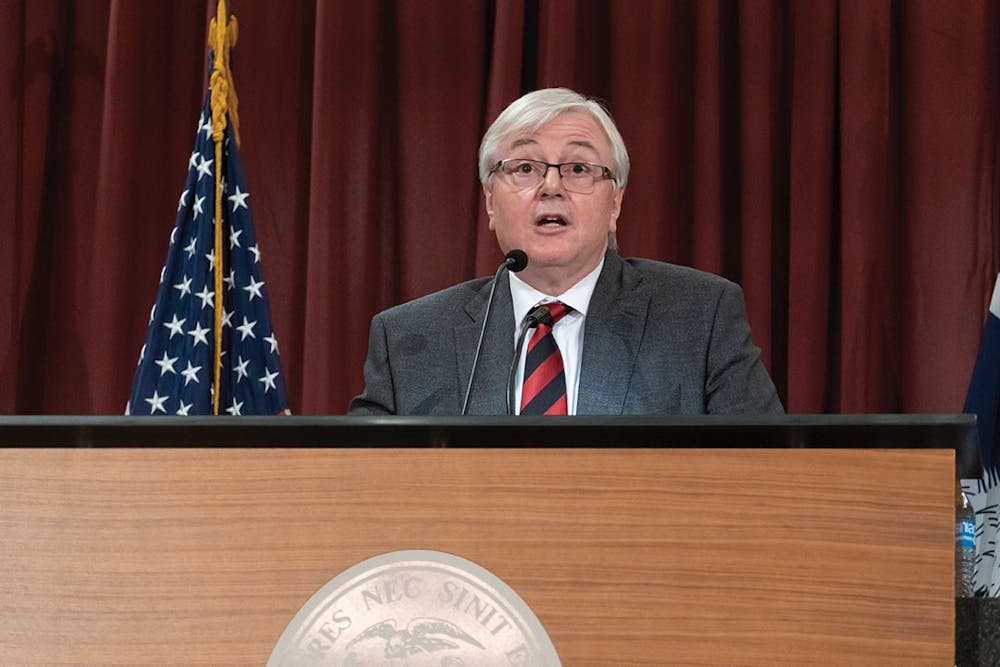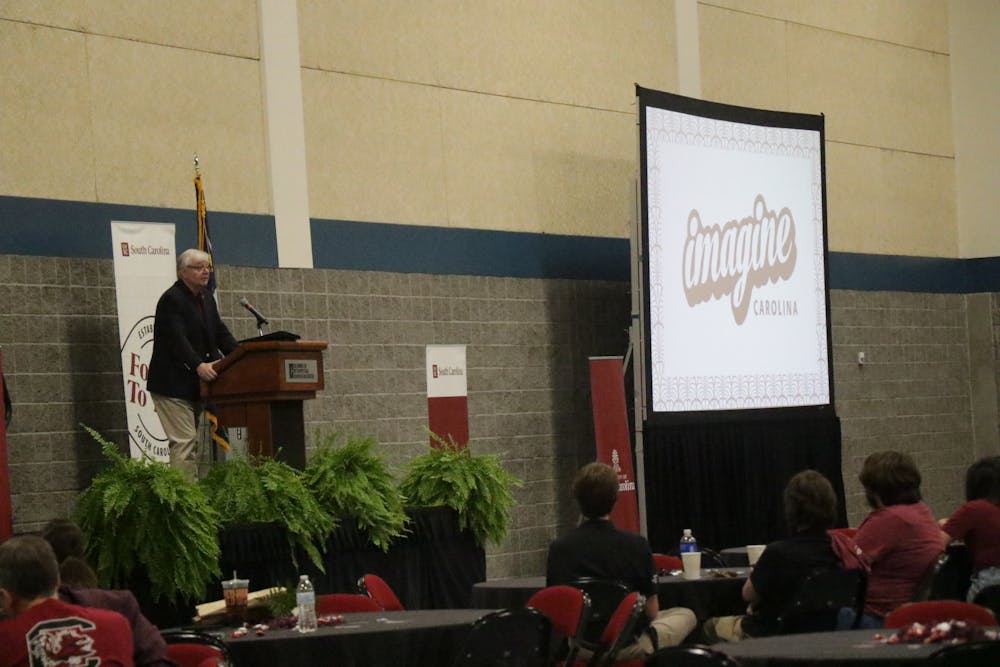After holding Imagine Carolina, a student forum, last fall, the university announced in a campus-wide email the most common complaints among students. According to the email, students brought up concerns about advising, mental health resources and a lack of diversity in the student body and faculty.
“I think the priorities to a large extent were defined by the number of students who expressed concerns about a particular area,” USC President Michael Amiridis said.
Although complete solutions have not been made in the four months since the first conference, Amiridis said prioritizing students' needs and concerns is the goal of Imagine Carolina, but that first, it requires determining the most important areas of focus.
In his email across campus, Amiridis addressed student's issues with advising by announcing that USC will be changing it. Previously, Amiridis and Student Government have started restructuring the way students are advised no matter what college they're enrolled in.
Amiridis said the university will hire more advisors and transition to a comprehensive advising model, meaning how students are advised in their first year at USC will be the same as when they graduate.

The university has also made efforts to make mental health care more accessible like the new the Campus Well app announced last September. In the past, students have given up on scheduling an appointment with Mental Health Services after seeing the waiting list.
To offset long waiting lists and a lack of open appointments, the university now emphasizes outside events and programs that support mental health, including stigma-free USC, Thrive@Carolina or a partnership with Christy health services for online counseling. These programs came after a push from Student Body Vice President Maia Porzio, who's campaign focused on students' mental health.
“We don’t have the accommodations to physically put students in appointments, so it’s definitely been helpful to partner with them, to just have added so many opportunities for students to get one-on-one counseling,” Porzio said.
According to the Imagine Carolina report email, the university will direct $1 million to support mental health and wellness. The money will fund expanded access to 24/7 mental health services, including adding staff members directly to USC mental health support and ombuds services, which responds to suicide hotline calls and online mental health support.
Parking was also expressed as a major concern among USC students at Imagine Carolina. Third-year biological sciences student Eesha Gurav said she attended Imagine Carolina to specifically voice her feelings on diversity and parking.
"I resonated with there being more student parking," Gurav said, "there's just not a lot parking on campus during the day."
Amiridis said the university plans on announcing in February how it will work to add parking spaces to central campus, as well as expand transportation options going into fall 2023. For now, he encourages students to use the university's free shuttle system.
The university is also addressing the school's diversity with the implementation of a Graduation and Retention Council "to identify and remove the barriers that prevent on-time degree completion" for undergraduate students. The Diversity and Inclusion Advisory Committee will also become the President's Advisory Council on Diversity, Equity and Inclusion.
As of fall 2021, USC's undergraduate enrollment was just over 70% white, whereas the statewide USC system undergraduate enrollment was about 67% white. USC's faculty is 73% white and staff is 60% white. To combat this, the university plans on establishing a Bridge to Faculty program, which recruits underrepresented graduates to become professors.
Gurav said she would also like to see more representation among faculty and staff so that students may be able to relate more and talk about their experiences. For her, open discussions like the ones at Imagine Carolina are just the first step.
“There’s still a lot of students who didn’t go to this event ... there are thousands of students on campus, so I’d love to see more people going there,” Gurav said. “I want to see more action.”
USC plans on holding another Imagine Carolina, exclusively for faculty and staff, in Close-Hipp on Jan. 27.

